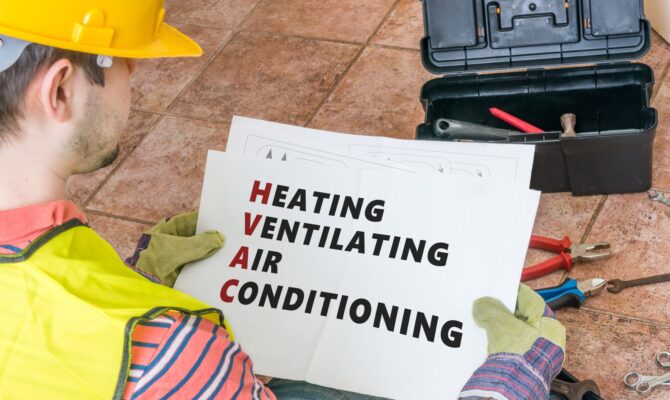At a certain age, the roles between yourself and your parents reverse, and you become their caregiver. This sudden role reversal can be confusing and stressful for both of you. How are you going to take on this new responsibility?
Caring for aging parents comes with plenty of unique challenges. Whether they’re staying in their own homes or moving in with you, you’re going to be making serious changes to both of your lives.
We’re here to talk about it so you can prepare yourself. Read on for our quick caring for aging parents checklist.
Evaluate Their Housing Situation
When your loved one starts to need outside care, you should start by evaluating their housing situation. Not all elderly people are interested in leaving their homes just yet, and that’s okay. There’s nothing wrong with them wanting to maintain their independence as long as they’re staying safe.
Make sure that their home is free of hazards. If it’s too large, consider asking them if they’d like to downsize to a smaller home or an apartment. This doesn’t mean that they have to move in with you or into an assisted living facility.
If they need extra help, set them up with a professional senior caregiver, even if it’s only for a few visits per week. Also, make sure that they have some type of emergency device so they can receive care n the event of an emergency.
Keep Track of Their Needs
The senior in your life is likely to be aware of their needs, but if they start to struggle with their memory, they might need your help to stay on track.
Does your loved one need specific medications? How often do they have to take those medications? If you’ve hired a caregiver for your loved one, make sure that you note all of this information.
If your loved one is starting to struggle with their mobility, make a note of any accessibility devices or features that they might need (we’ll discuss this more in the next section).
You should also keep their transportation needs in mind. Seniors often decide to stop driving as they age. It’s not advisable for seniors to continue driving if they’re no longer able to do so safely.
That said, seniors do still need to get around. Between shopping trips, appointments, and leisure activities, mobility is important for seniors. Help them arrange their transportation so they can continue getting where they need to go.
Whether you choose to drive them yourself, help them navigate public transportation, or hire someone to help, it will be a huge help to your loved one.
Consider Moving Them In
So what if your loved one is no longer able to live on their own? You can move them into an assisted living facility if they’re comfortable with that, but many people prefer to move their loved ones into their own homes at first to save money and spend more time with them.
If you have a spare room that’s on the ground level, this is a perfect spot for your loved one. That said, many homes don’t have spare rooms, and having someone in your house full-time might get frustrating.
If you have room on your property, consider building a backyard mother in law cottage instead. This way, you’ll be able to give your loved one a private place to live that’s still close enough for you to be available to them at all times. Both you and your loved one will have the privacy that you need.
Make sure that your home (or the cottage) is accessible. It’s a good idea to add stair railings or block off stairs altogether for extra home safety. This will help prevent falls (which are both common and dangerous for elderly adults).
Provide a seat for the shower and make sure to have non-slip surfaces in the bathroom. Put a railing in the shower and next to the toilet.
You want your home to be as safe and comfortable as possible for your loved one. It might require a few small changes, but it’s worth it when it comes to improving your loved one’s quality of life.
Establish Boundaries
If you move your loved one into your home, it’s crucial to establish boundaries with them. It’s hard for many people to come to terms with the fact that the roles have been reversed. They are now living in your home instead of the other way around.
Make sure that they realize that you can run your own home as you see fit. Let them know what is and isn’t appropriate around the home and around your other family members (if applicable).
Let them set boundaries as well. Effective cohabitation requires strong boundaries and ground rules, at least at first.
Ask for Help
You don’t have to do everything on your own when your loved one moves in with you (or if you’re trying to be a personal caregiver in their home). You have plenty of responsibilities already, and if you don’t take any time for yourself, you’re going to burn out.
If you’re a full-time caregiver for your elderly loved one, consider asking other family members for help every so often. You can also hire respite care services so you can take a break.
Consider talking to a counselor if you get overwhelmed with your tasks. You can’t take care of anyone else if you aren’t taking good care of yourself.
There may come a time when you’re no longer able to effectively care for your elderly loved one. At this point, open up a conversation about moving them into an assisted living facility. This is often the most compassionate choice (though it can be a difficult one).
Caring for Aging Parents Isn’t Easy
Caring for senior parents takes some getting used to. You need to upgrade your home safety for seniors, establish new boundaries, and make sure that you’re giving your loved one the best possible environment for a good quality of life. The roles have been reversed.
If you need help caring for aging parents, never be afraid to reach out to friends and caregivers.
For more articles all about family and more, visit the rest of the site.



